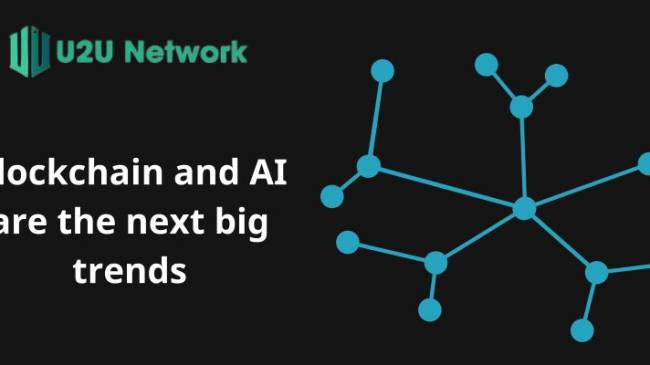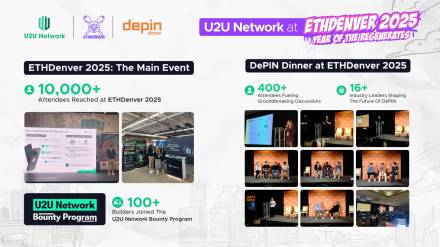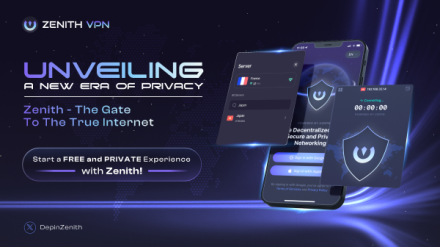Catch a glimpse into the future with blockchain and AI are the next big trends of 2024. Uncover their combined power reshaping industries, unlocking new possibilities, and setting the stage for groundbreaking innovation.
Table of Contents
Understanding the Synergy of Blockchain and AI
Understanding the Synergy of Blockchain and AI: In today's rapidly evolving technological landscape, the convergence of blockchain and artificial intelligence (AI) stands out as a transformative force reshaping industries across the globe. This synergy leverages the unique strengths of each technology to create innovative solutions that were previously unimaginable.
Blockchain's Strengths: Blockchain technology revolutionizes data management by offering decentralization, immutability, and transparency. Decentralization ensures that data is not controlled by a single entity, thereby enhancing security and reducing the risk of tampering. Immutability guarantees that once data is recorded on the blockchain, it cannot be altered, ensuring data integrity. Transparency allows stakeholders to trace the origin and history of data, fostering trust and accountability within the ecosystem.
AI's Strengths: On the other hand, AI excels in analyzing vast datasets, identifying complex patterns, and making accurate predictions. Machine learning algorithms can sift through massive amounts of data to uncover insights that human analysts might miss. This capability is particularly valuable in extracting actionable intelligence from the data stored on blockchains.
The Perfect Match: The synergy between blockchain and AI becomes evident in their complementary roles. Blockchain provides a secure and trustworthy foundation for AI applications by ensuring data integrity and fostering transparency. AI, in turn, enhances blockchain's capabilities by extracting valuable insights and optimizing processes based on data patterns. For example, AI algorithms can analyze transaction data on a blockchain to detect anomalies or predict market trends with greater accuracy.
Key Trends and Predictions for 2024
We anticipate a rapid acceleration in the convergence of blockchain and AI, shaping the technological landscape in profound ways:
Decentralized AI Marketplaces: 2024 will witness a surge in decentralized AI marketplaces leveraging blockchain technology. These platforms will enable developers to exchange AI models and algorithms securely and transparently. By eliminating intermediaries, these marketplaces will encourage collaboration, spur innovation, and potentially lower the cost of AI development.
AI-Powered Smart Contracts: Integrating AI into smart contracts will be a pivotal trend in 2024. AI algorithms can analyze real-time data across diverse sources, enabling smart contracts to autonomously execute based on intricate logic and dynamic conditions. This advancement will foster sophisticated decentralized applications (dApps) in domains such as decentralized finance (DeFi), supply chain management, and insurance.

Enhanced Data Privacy and Security: With AI's increasing reliance on data, concerns over privacy and security are mounting. Blockchain offers a decentralized, tamper-proof framework for data storage and management, addressing these concerns. By employing cryptographic methods and decentralized storage, blockchain ensures the confidentiality and integrity of sensitive data used in AI training and decision-making.
Tokenization of AI Models: Tokenization is revolutionizing access to AI capabilities by allowing fractional ownership of AI models. This innovation enables individuals and businesses to invest in and utilize AI models without developing them from scratch. The result is a more inclusive and collaborative AI ecosystem, promoting widespread access and innovation.
AI-Driven Blockchain Optimization: Beyond transforming applications, AI is optimizing blockchain networks themselves. AI algorithms can analyze network behavior, detect anomalies, and predict security threats, enhancing consensus mechanisms, scalability, and overall network security. This optimization promises more efficient blockchain operations and robust defenses against emerging threats.
Real-World Applications of Blockchain and AI Convergence
The synergy between blockchain and AI is not just theoretical but is actively reshaping industries, redefining business operations and technological interactions.
- Supply Chain Management: Blockchain and AI are revolutionizing supply chain management by introducing unparalleled transparency and traceability. AI-driven sensors capture real-time data on product conditions and locations throughout the supply chain. This data is securely recorded on the blockchain, ensuring product authenticity and quality. Smart contracts automate processes like payments and customs clearance, reducing reliance on intermediaries and mitigating fraud risks.
- Healthcare: Blockchain and AI hold immense potential in healthcare. Blockchain ensures secure storage and seamless sharing of patient data, enhancing privacy and interoperability across healthcare providers. AI analyzes this data to detect patterns and trends, leading to more precise diagnoses and personalized treatment plans. Blockchain also optimizes clinical trials by creating transparent, tamper-proof records of patient data, thereby enhancing research efficiency and reliability.
- Finance: The financial sector is undergoing a profound transformation with blockchain and AI innovations. Decentralized finance (DeFi) platforms facilitate peer-to-peer lending and borrowing without intermediaries. AI algorithms enhance security with advanced risk assessment and fraud detection capabilities. Blockchain-based identity verification systems streamline customer onboarding and KYC processes, bolstering security and efficiency in financial transactions.

U2U Network stands at the forefront of this technological revolution, pioneering solutions that harness blockchain and AI to drive industry transformation. In supply chain management, U2U Network ensures end-to-end traceability and transparency, safeguarding product authenticity and quality. Their decentralized identity management solutions empower individuals with control over their digital identities, enhancing privacy and security in digital interactions.
Challenges and Opportunities
The convergence of blockchain and AI presents numerous opportunities but also comes with significant challenges that must be addressed to unlock its full potential:
Scalability and Efficiency: Blockchain networks, particularly public ones, face scalability issues due to transaction congestion and high fees. Concurrently, AI models demand substantial computational resources and storage capacities. Scaling both technologies to meet real-world demands remains a critical hurdle.
Opportunities: U2U Network and similar initiatives are pioneering layer-2 scaling solutions. These solutions move computations off-chain, boosting transaction throughput and reducing costs. This advancement promises to make blockchain and AI applications more feasible and accessible.

Ethical Considerations: As AI systems advance, concerns about bias, transparency, and accountability become more pronounced. Deploying AI in critical sectors like healthcare and finance raises ethical questions regarding fairness, discrimination, and unintended consequences.
Opportunities: Leveraging blockchain's transparency can establish auditable AI models, ensuring scrutiny of decision-making processes. Furthermore, decentralized governance models can foster ethical AI development, involving diverse stakeholders to uphold responsible practices.
Regulatory Landscape: The regulatory framework for blockchain and AI is evolving, with governments and organizations navigating innovation against consumer protection and ethical standards. Uncertain regulations can impede adoption and innovation in these transformative technologies.
Opportunities: Engaging proactively with regulators and policymakers can shape a conducive regulatory environment. Clear and consistent regulations can stabilize the landscape, promoting investor confidence and accelerating the adoption of blockchain and AI innovations.
In conclusion, the convergence of blockchain and AI stands poised to redefine technological landscapes in 2024 and beyond. This synergy promises transformative impacts across industries, from enhancing supply chain transparency to revolutionizing healthcare and financial services. U2U Network, as a leading innovator in this space, exemplifies the potential of this convergence.
By leveraging blockchain's security and transparency alongside AI's analytical prowess, U2U Network is pioneering solutions that enhance efficiency, scalability, and ethical standards in decentralized applications. As blockchain and AI continue to evolve and integrate more deeply, U2U Network's contributions are set to play a pivotal role in shaping a future where these technologies empower businesses and individuals alike, driving forward innovation and fostering a more connected global ecosystem.





.png)
